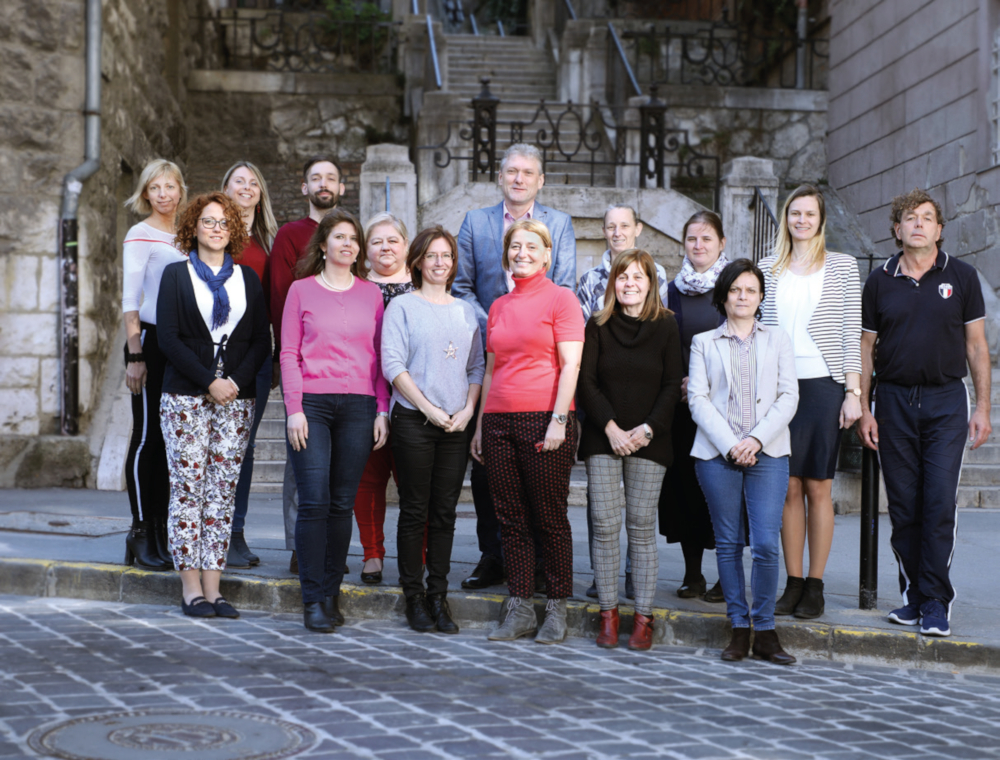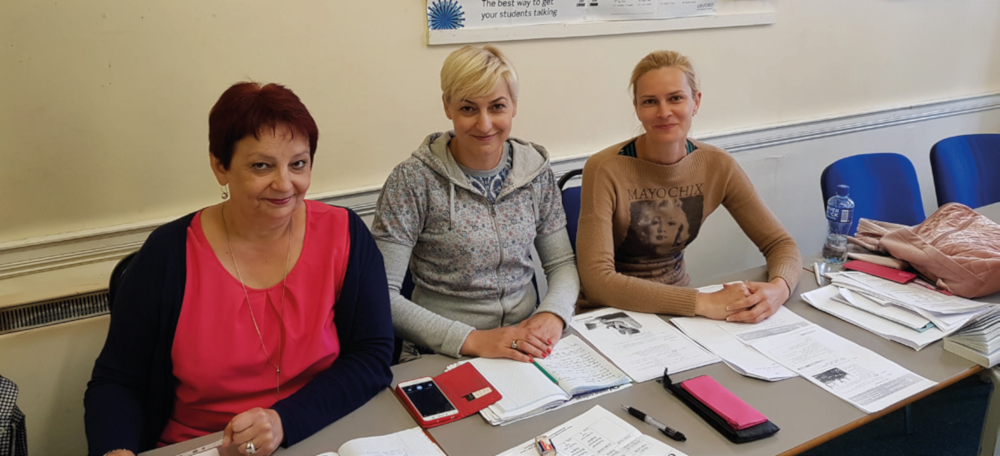
The issue of innovation has been receiving special attention globally in the past few decades, and for twenty years it has also taken a prestigious position in education. Besides academic knowledge, this more and more rapidly changing environment also requires adequate technical knowledge, and therefore many Hungarian institutions are committed to supporting the professional renewal of their teaching staff. We discussed this innovative approach with Tibor Plánk, head of Hunfalvy János Bilingual Secondary Vocational School of Economy and Trade.
Constant renewal is the key
Institution: Hunfalvy János Bilingual Secondary Vocational School of Economy and Trade of the Budapest Centre of Economic Vocational Training
Project title: Methodological and Linguistic Renewal at Hunfalvy
Coordinator: Tibor Plánk
Website: www.njszki.hu
Project values:
The school implementing the project is a great example for how an institution, open to changes and thinking in terms of a wide range of international programmes and projects, with a committed management and teaching staff, can become the active and conscious shaper of its own internal professional environment.
A recurring message of their institutional and application documents is that maintaining and increasing the effectiveness of high-quality education requires a teaching staff and assistants supporting the educational work who are open to, and capable of, constant renewal.
The school has been driven by innovation for years, and you have been involved in a number of international projects focusing on development, but it was the first time you had applied for teacher training courses. How did you come to the decision to apply?
Indeed, our school, 135-years-old this year, is characterised by innovation and extensive international relations. Besides Europe, our student exchange relations also include secondary schools in Japan, Russia and the US. We have successfully implemented several Comenius projects and Erasmus+ KA2 partnerships.
Three years ago, we laid the emphasis on varied educational methodology, which we called "renewing-modern school concept". We believe that the centre of any good school is the student. However, the key to a good school is the up-to-date, continuously trained and open-minded teacher with European experiences. We think that the school management's and the teachers' commitment to professional and methodological self-education and to improving teaching competencies are crucial to continuing our successful work. The training courses implemented under the Erasmus+ mobility programme provided a great opportunity for that.
One of the priorities of the project implemented was the educational and methodological renewal. How can the teachers of the school benefit from the knowledge gained in everyday teaching practice?
Since the methods and programmes in question are quick and easy to learn and can be integrated into almost any subject, we could easily adapt them. Since the implementation of the project, besides Kahoot that we had formerly used, the use of Socrative, Learning Apps, Quizlet, Padlet and Word Cloud has become everyday routine, and our colleagues use several image editing programmes and applications, too. Each work team created exercise banks for several subjects to make their everyday educational and teaching palette more varied. These online exercises are also suited to be transformed or extended through a few clicks, so they can be quickly adapted to particular groups or persons.

What does this involvement in the project mean to the teachers?
The beauty, as well as the difficulty, of the work teachers and educators do lies in constant renewal. These training courses provided a great opportunity to shape our perspective. You can never be satisfied with the knowledge you have gained, so they need constant improvement. We need to go with the times and master modern educational technologies to meet the challenges.
Under the programme, 19 colleagues were involved in altogether 20 mobilities. Some of these were language courses and the rest teaching methodology courses. Our colleagues emphasised that the training courses were held at high professional standards and were very effective. Many teachers highlighted that, besides learning about new methods and tools, they also received positive feedback about their work, and that not only their methodological and ICT competencies had developed, but in the native environment their language and communicative skills had also become smoother and more self-confident, and their vocabulary richer. Besides, they also had lots of cultural experiences.
How did they share their experiences with their colleagues?
Within the school, all our colleagues concerned shared their experiences during Hunfalvy Educational Days, which made the event very active, dynamic and varied. Some members of the audience even became interested in applying for the next programme. At the educational event held in autumn by the Budapest Centre of Economic Vocational Training and the Educational Authority, we as the base institution held a professional day focusing on the experiential and effective use of digital tools in the learning process.
How did the project affect the whole of the institution?
The effect of the project is clearly a positive and beneficial one. The members of the teaching staff who were not involved in the implementation of this project gained inspiration from their peers returning from the mobilities. Our colleagues received intensive, experiential motivation for renewal, development, and they became aware that effective methods increased students' activity, as well as the success of the teaching-learning process. I also consider the clearly positive effect on our students important, since it was a driving force for teachers to motivate their students to learn languages and learn about European cultures and values through their own personal experiences, too.

What do your consider the greatest result achieved during the implementation?
The commitment of our colleagues involved towards our school has increased; they better understand and accept the linguistic diversity of the institution, and their need for internationalisation has also increased. As a result of our involvement in mobilities, our international relations have become stronger. Besides, our internal relations have also become more extensive; in order to support students' education, teachers initiatively cooperated with each other, beyond the activity of the work teams. Internal training courses, sharing and introducing best practices are still regular and well-organised, in which the participants of the mobility programmes assume a leading role. Language teaching and the pedagogical processes of bilingual education have also improved at our school.
How will you carry on the project outcomes? What do you do to make your achievements sustainable in the long term?
The competencies gained by the participants were integrated into the school's development processes, educational programme and the local curricula for individual subjects. Also, the experiences gained were integrated into our short, medium and long-term development processes; based on the contents of our European Development Plan, we design our next year's mobility projects around the achievements of the current one. Because it's good to apply, win, travel and learn!
Last modified: 08-08-2019















